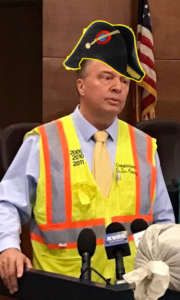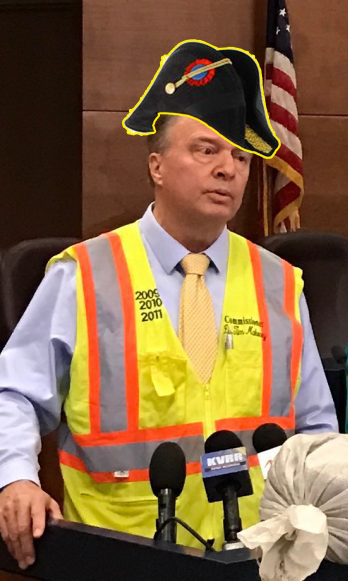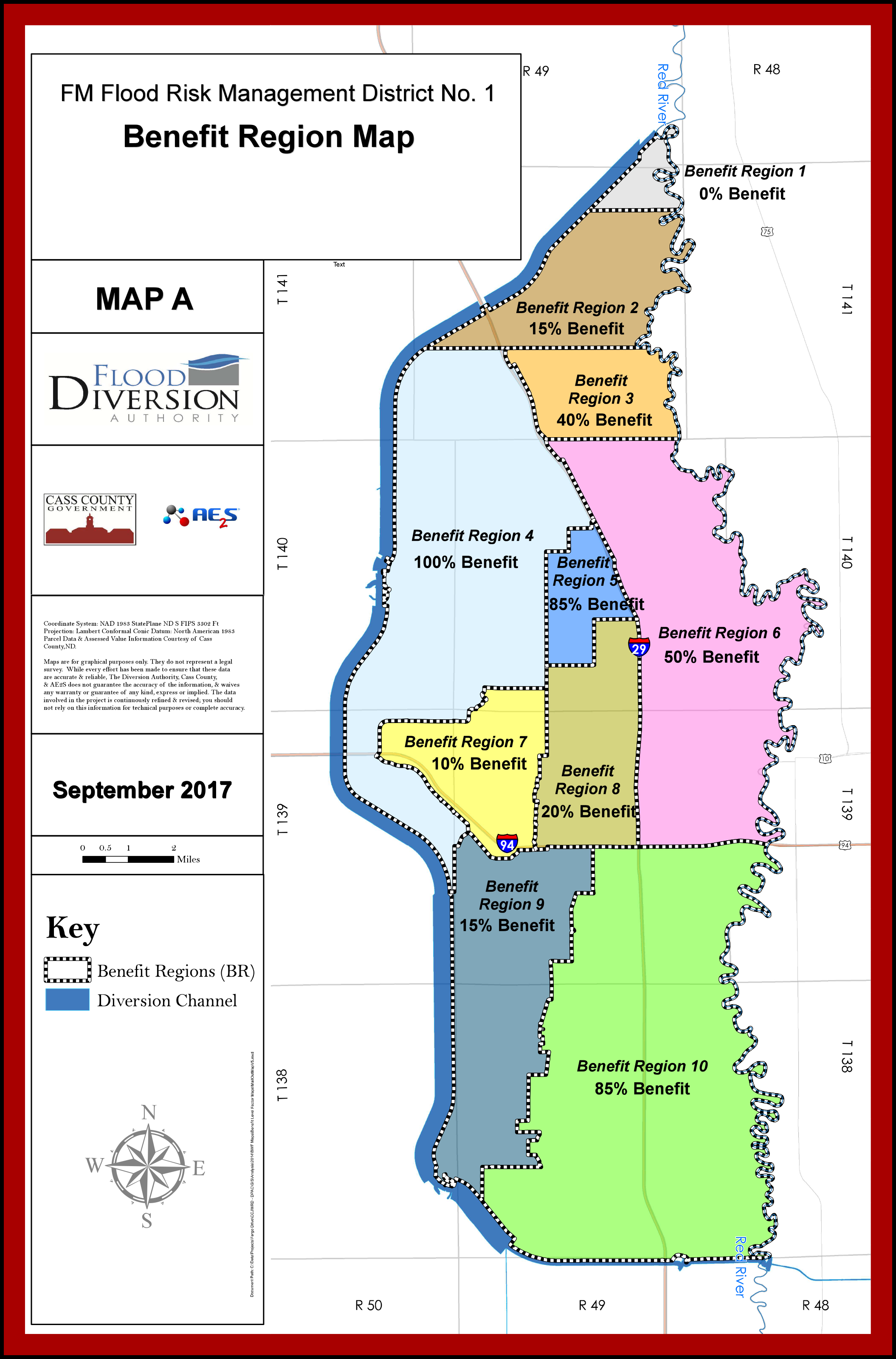
Mayor Fargo, ND
The FMDA (Fargo Moorhead Diversion Authority) just received 561 million reasons to pump the brakes on the $4-5 billion boon-doggle with “no new direct appropriations” changes to the Water Infrastructure Finance and Innovation Act (WIFIA) program which would rescind all outstanding unobligated WIFIA appropriations from the 2017, 2018, and 2019.
A July 14, 2020 Forbes article (read more…) indicated sales national tax receipts shrank $6 billion in May 2020, with North Dakota plummeting more than one-third ~ but the Imperial Fargo spending binge propensity continues despite a significant downturn in sales tax locally and nationwide.
Is it wise to increase Fargo’s general fund spending by 4.2% and essentially cut employee wages by not including a cost-of-living increase? A July 3, 2012 Reuters article (read more…) indicated that Stockton California employees gave up pay increases in a touted “Ponzi scheme” to shore up health benefits prior to the city filing for bankruptcy.
Fargo still owes over $2.9 million on the the $7.79+ million dollars it committed to just one legal firm trying to figure out how to borrow money.
Staggering Costs
As of June 30, 2020 the FMDA racked up $704.95 million in contracts and invoices, still owes over $141.65 million and that does not include the $150.25 million in bank loans held off FMDA books, which have not received a principal payment since 2015 and accrue around $200 thousand in interest per month.
If Fargo’s economy were a ship and Mayor Mahoney were its captain, it appears that he would rather grab his dinghy and watch everyone else financially flounder.
Here is a recent correspondence from the FMDA that displays the imperial entitled privilege that radiates from Fargo Mayor Tim Mahoney and his ilk…
Download: July 17, 2020 FMDA Letter – PDF 733 kb
| July 17, 2020 | |
| The Honorable Nita Lowey Chairwoman Committee on Appropriations U.S. House of Representatives Washington, DC 20515 |
The Honorable Kay Granger Ranking Member Committee on Appropriations U.S. House of Representatives Washington, DC 20515 |
| The Honorable Betty McCollum Chairwoman Subcommittee on Interior-EPA Appropriations U.S. House of Representatives Washington, DC 20515 |
The Honorable David Joyce Ranking Member Subcommittee on Interior-EPA Appropriations U.S. House of Representatives Washington, DC 20515 |
| Dear Chairwoman Lowey, Chairwoman McCollum, Ranking Member Granger, and Ranking Member Joyce:
The Metro Flood Diversion Authority (the “Authority”) writes to express its deep concern with the House Appropriations Committee’s approach to funding the Water Infrastructure Finance and Innovation Act (WIFIA) program in the fiscal year 2021 Interior, Environment, and Related Agencies appropriations legislation. As proposed, the House legislation would unacceptably negate years of work by the Authority that has been working with EPA in good faith to obtain low-cost financing through the WIFIA program for the Fargo-Moorhead Metropolitan Area Flood Risk Management Project, which will provide desperately needed permanent flood protection to our communities from repeated and worsening flooding from the Red River.The Authority consists of the City of Moorhead, Minnesota; the City of Fargo, North Dakota; Clay County, Minnesota; Cass County, North Dakota; and the Cass County Joint Water Resource District in North Dakota. These local entities have agreed to cooperate in financing the Project. The local entities are pledging local sales tax to repay an anticipated WIFIA loan. The Authority will not use federal dollars to repay the WIFIA loan. As proposed, the House’s FY21 Interior-EPA spending bill includes no new direct appropriations for WIFIA. Instead, the bill would rescind all outstanding unobligated WIFIA appropriations from the 2017, 2018, and 2019 fiscal years and use this funding – estimated by the committee to be roughly $71 million – to support new loans in FY21. The Authority understands the intent of this approach is to ensure all loans that close in the future are consistent with new “budgetary scoring criteria” published by EPA and OMB on June 30, which seeks to prevent federally owned projects from obtaining WIFIA financing. However, the WIFIA eligible portions of our project will not be funded through federal funding; rather WIFIA eligible portions will be funded through a variety of non-federal revenue sources. While the Authority has no objection to excluding federal projects from WIFIA eligibility going forward, the Committee’s approach would rescind all pre-FY20 funds associated with unobligated loans. In this case, the Authority has applied for the loan and is currently performing due diligence, and the funds that would go to that loan are technically unobligated until closing occurs. This is troubling because, due to the COVID-19 crisis, EPA has allowed the Authority additional time to complete its full application. Nevertheless, if the Authority does not close on its WIFIA loan before the FY21 spending legislation goes into effect, the funds would disappear and the Authority would have to begin the application process all over again. This means the Authority would have to start over and submit a new letter of interest to seek a WIFIA loan in FY21. To date, the Authority has put substantial time and expense into completing the steps required by the WIFIA program. On July 5, 2019, the Authority submitted a letter of interest to the EPA and on October 10, 2019, the Authority was selected to apply for assistance in an amount up to $561,000,000. The Authority successfully submitted its application fee of $100,000, and credit application to the EPA on May 20, 2020. To complete the standard application process, the Authority performed a significant amount of work in reliance that it would receive the WIFIA loan. To its detriment, the Authority incurred significant expenses related to the Project’s creditworthiness, including obtaining a preliminary rating opinion letter indicating the financial strength of the overall Project and developing the financial structure of the proposed financing, which cost $127,000. In addition, the Authority spent a significant amount of time ensuring the Project complies with all relevant, applicable laws and regulations by incorporating these into Project related documents. The Authority is in the process of performing further due diligence as requested by EPA, prior to closing which is anticipated to occur in early fall 2020. The Authority has incurred costs in excess of $227,000, associated with obtaining a WIFIA loan. Ultimately, the committee’s proposal will pull the rug out from under the Authority, who has relied in good faith to its detriment that it was on its way to securing a WIFIA loan. As a result, the Authority may have to seek infrastructure loans under terms more expensive to its taxpayers. Pursuing the current course of action will punish the Authority, who had no responsibility in developing the criteria. If Congress were to rescind funding now over an unrelated dispute over the eligibility of federal projects, it would not only return the Authority to square one, but it would also do tremendous damage to the WIFIA program itself. Again, the Authority will not be using federal dollars to repay the WIFIA loan. The local entities are pledging local sales tax to repay the anticipated WIFIA loan (local voters have repeated passed sales taxes to pay for the Project). It is likely that many communities would think twice about pursuing a WIFIA loan if they knew that Congress might rescind their opportunity at any point before the closing of their loan. Further, the Committee’s legislation would reduce EPA’s funding for administration of WIFIA to just $1 million – an inadequate sum that would effectively make it impossible to administer the program. The House Appropriations Committee’s proposal threatens to irreparably harm the program while throwing the Comprehensive Project into question. Congress must do better and agree on an FY21 funding plan that provides adequate funding without jeopardizing prior-year projects. We appreciate your past support of this successful program and we stand ready to work with you on this effort. Sincerely, |
|
Views: 694




It looks like someone is not buying the Fargo’s line of BS.
Recently the FM Diversion applied for a loan with preposterous claims.
The application rational was.
“temporarily storing it (water) on vacant land.”
What does the FM Diversion consider vacant? Homes, farms and cemeteries of citizens are vacant?
Fish passage concerns of the FM Diversion made of “whole cloth”
The claim that the project protects the FM Metro Area, “245,000 people” is a lie as the metro area includes areas not protected and some in fact impacted negatively by the diversion project.